#albus x gellert
Explore tagged Tumblr posts
Text

“We held hands, one hundred years ago, and one hundred years later.”
This is another part of the comic that remains unfinished.
In my mind, when Gellert laughed at Voldemort, shouting “I welcome death!”, it was as if he was back in that summer, a hundred years ago, when he held Albus’s hand and made the blood pact.
A hundred years later, those hands are still intertwined—in the moment green light flashes on the tower, and at the same instant, tears fall from a pair of blue eyes, sliding down the tip of a nose.
For the Greater Good.
#grindeldore#ggad#dumbledore x grindelwald#albus x gellert#albus dumbledore#gellert grindelwald#fansart#harry potter#harry potter fanart
339 notes
·
View notes
Note
I find this really interesting and have some thoughts.
Personally, I don’t think Grindeldore is problematic representation, though I understand why some might feel that way. A lot of the criticism aimed at the HP books seems to stem more from distrust of Rowling than the text itself. That distrust is valid—she’s not a safe figure for queer people—but I don’t believe her writing is inherently homophobic.
To me, Dumbledore and Grindelwald’s relationship reads as a sincere and meaningful. The fact that it’s subtext doesn’t make it inherently queerbaiting or homophobic. Subtext often reflects the limitations of the time, not deliberate erasure. And in the 90s, explicitly queer characters in children’s books were rare and risky. Rowling revealing Dumbledore’s sexuality later doesn’t make her a great ally, but I don’t find it harmful either.
Dumbledore’s queerness isn’t used for cheap engagement—it simply isn’t central to the main story. Harry Potter isn’t a queer narrative, and writing his sexuality into the plot could have felt forced unless the story was fundamentally different.
The strongest critique and best argument for Grindeldore to be read as problematic, is the tragic and corruptive framing of their relationship which is in line with historical harmful troupes. But I don’t think the narrative supports that interpretation.
Grindelwald’s refusal to betray Dumbledore by protecting his tomb, and his line: “There is so much you do not understand,” both point toward love as a redeeming force in Grindelwald’s life. It is implied that Grindelwald’s love for Dumbledore is what makes him better than Voldemort and capable of remorse. It is clearly meant to be a good thing.
Albus love for Gellert does ‘lead him astray’ but I would argue this is more used as an explanation for why he could be seduced by power and ‘the dark side’, and is supposed to be something we as readers can sympathize with.
Their relationship is the humanizing thread in both characters’ arcs (viewed as romantic or platonic). It's compelling, if imperfect. It feels organic within a story not centered on queerness and most importantly, it’s a good story. Which I find more important than perfect representation.
Do you think there are homophobic elements in Grindeldore?
Ooooh yeah, i mean here are several homophobic elements in how Grindeldore is written (or more accurately: not written). From both a political and literary standpoint, it’s clear that the relationship is handled with cowardice and erasure.
First, there’s the issue of J.K. Rowling’s retroactive “reveal” that Dumbledore was gay, which was never explicitly shown in the original books and was later confirmed only in interviews. That’s already a red flag, it centers queerness as subtext, not text, as something acceptable only if you know how to “read between the lines.” It’s a very neoliberal move: using diversity claims for progressive clout while refusing to represent that diversity meaningfully in the actual narrative.
Then, when we finally get a story where Grindelwald and Dumbledore’s relationship could be explored — the Fantastic Beasts films — their romantic and emotional connection is again minimized to vague dialogue and zero intimacy. These are supposed to be two men who were passionately in love and driven apart by ideological conflict, and yet the story keeps them physically and emotionally distant. Their bond is never given the same narrative weight as a straight romance would be. That’s not accidental, that’s institutional homophobia, even when it’s wrapped in rainbow capitalism.
Worse still, Grindelwald becomes the archetype of the dangerous, manipulative queer man, the one who “led Dumbledore astray.” That plays into long-standing tropes about queerness being corrupting, irrational, or inherently tied to deviance and destruction. If we’re looking at this from a gender studies perspective, it’s a textbook example of queer-coded villainy and the sanitization of queerness in “good” characters like Dumbledore.
So yes, Grindeldore is not just queerbaiting, it’s structurally homophobic. It punishes queerness narratively, sidelines it politically, and reduces it to tragedy without ever letting it live fully or visibly.
#gellert grindelwald#grindeldore#albus dumbledore#albus x gellert#queerbating#grindelwald#dumbledore#text analysis
116 notes
·
View notes
Text
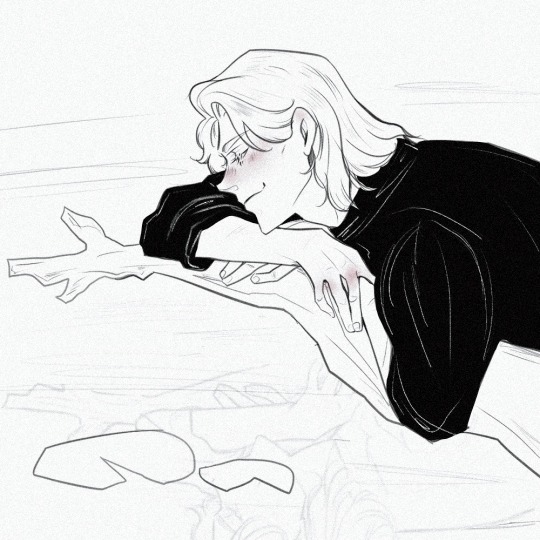
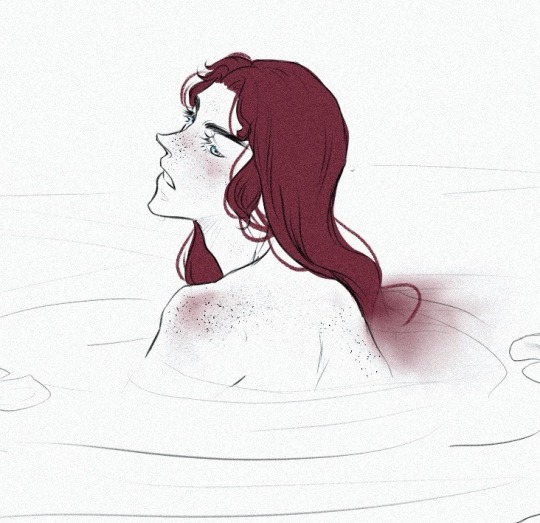
Grindeldore summer first meeting ahaha babus bathing and Gellert peeping this mysterious and enchanting merman so far from the sea, prisonner from a sad little pond
#albus dumbledore#ggad#grindeldore#grindledore#gellert grindelwald#albus x gellert#my art#fb3#albus dumbledore x gellert grindelwald#hp fanart
292 notes
·
View notes
Text
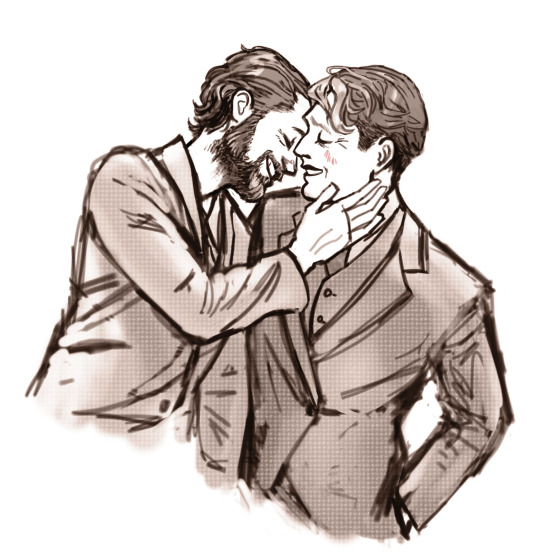
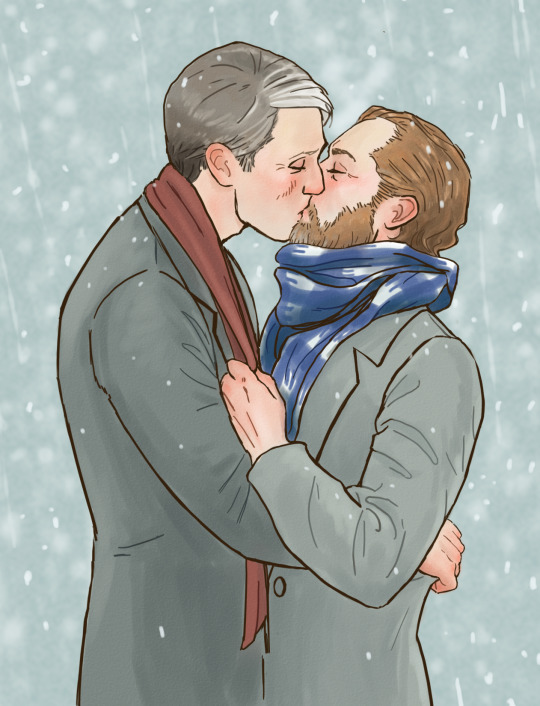
Having fun with your psycho boyfriend
#shameless use of reference#grindeldore#gellert grindelwald#albus dumbledore#albus x gellert#my art#my grindeldore art#when you spent 5 min drawing something and several hours on another thing#and then you like the 5 min thing much more#:')
530 notes
·
View notes
Text
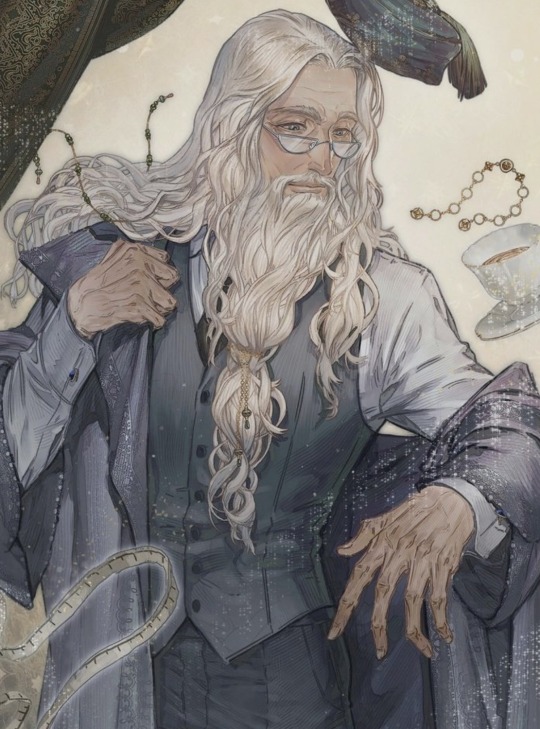
If Albus would still be with Gellert…
#grindeldore#albus x gellert#albus dumbledore#gellert grindelwald#jamie campbell bower#fantastic beasts#crimes of grindelwald#fantastic beasts 3#the deathly hallows#jude law#toby regbo#mads mikkelsen#thesecretsofdumbledore#secrets of dumbledore#olddumbledore#isn’thebeautiful
788 notes
·
View notes
Text
Dumbledore and Grindelwald went from lovers to enemies. The inverse parallel of Harry and Draco going from enemies to lovers is right there. Something something a fiery passion between two young wizards that shaped the fate of the wizarding world … something something masters of the Elder Wand … something something Voldemort was kept from the Elder Wand by Grindelwald’s lingering love for Dumbledore … something something Voldemort was not master of the Elder Wand because of Draco’s lingering love for Harry … something something Harry is like Dumbledore but also not like him … something something Draco’s family wanted him to turn out like Grindelwald but he didn’t … something something … DO YOU SEE THE VISION???
#harry potter#wizarding world#drarry#grindeldore#hp#hp books#hp polls#hp fandom#anti jkr#i do not support jkr#draco malfoy#albus dumbledore#gellert grindelwald#harry x draco#albus x gellert#draco x harry#gellert x albus#dumbledore x grindelwald#grindledore#harry potter fandom#harry potter poll#harry potter universe#harry potter movies#harry potter books#harry potter films#harry potter meta#hp meta#drarry fandom#drarry squad#drarry gang
218 notes
·
View notes
Text
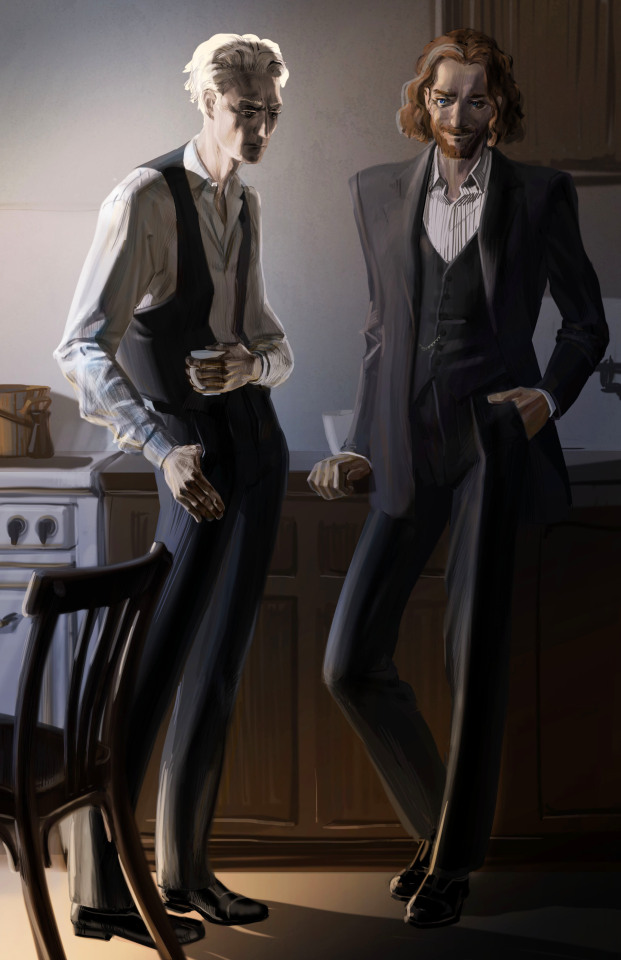
What if these two weren’t separated by Ariana’s death? What if they weren’t kept apart by the necessity of being leaders of their respective sides? What if Albus were much, much smarter when he first meets Gellert? Do they have a chance? What kind of people would they be? What personalities would they have?
Illustration for fic, AU, no powers
#harry potter#harry potter au#harry potter fanart#albus x gellert#albus dumbledore#gellert grindelwald#hp fanfic#gellert grindleward#illustration#artists on tumblr#digital art#no powers au#alternate universe#grindeldore
149 notes
·
View notes
Text
random trope: “lets be really gay and sit at a booth together during a time when our people aren’t accepted in the world we live in”
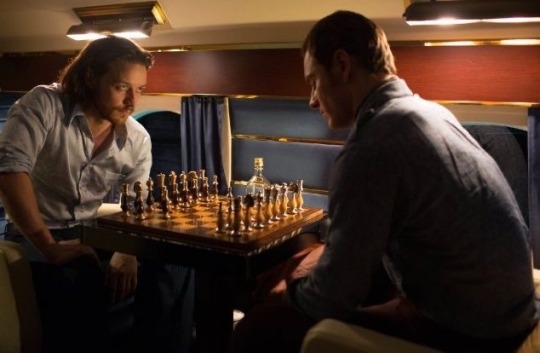
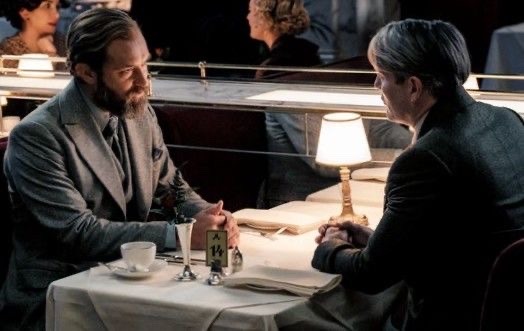
no cause like y are they sitting the exact same
#et cetera#cherik#grindeldore#dumbledore x grindelwald#harry potter#secrets of dumbledore#x men first class#first class#charles xavier x erik lehnsherr#erik lehnsherr x charles xavier#albus dumbledore x gellert grindelwald#gellert grindelwald#gellert x albus#albus x gellert#charles x erik#erik x charles#x men
424 notes
·
View notes
Text


#art#hp#harry potter#fantastic beasts#grindeldore#gellert grindelwald#albus x gellert#albus dumbledore#dumbledore x grindelwald#grindelwald#gellert#albus#dumbledore
92 notes
·
View notes
Text
behind every gay person, there is a gayer and more evil one


#fantastic beasts#grindeldore#vinda rosier#queenie goldstein#gellert grindelwald#albus dumbledore#rose gold#albus x gellert#queenie x vinda#jacob kowalski#lally hicks#leta lestrange#vinda queenie#queenie#harry potter#wlw#mlm
200 notes
·
View notes
Text

So when I look at Harry Potter, my goal is to separate what I think the books are intending to say, from what they actually say, from what the movies say… and what the common fan interpretation is. So today I’m interested in Dumbledore, and specifically in the common headcanon of Manipulative/Morally Gray Dumbledore. Is that (intentionally or unintentionally) supported by the text?
PART I: Omniscient Dumbledore
“I think he knows more or less everything that goes on here”
In Book 1, yes Dumbledore honestly does seem to know everything. He 100% arranged for Harry to find the Mirror of Erised, publicly left Hogwarts in order to nudge Quirrell into going after the Stone, and knew what Quirrell was doing the whole time. It is absolutely not a stretch, and kind of heavily implied, that the reason the Stone’s protections feel like a little-end-of-the-year exam designed to put Harry through his paces… is because they are. As the series goes on this interpretation only gets more plausible, when we see the kind of protections people can put up when they don’t want anyone getting through.
Book 1 Dumbledore knows everything… but what he’s actually going to do about it is anyone’s guess. One of the first things we learn is that some of Dumbledore’s calls can be… questionable. McGonagall questions his choice to leave Harry with the Dursleys, Hermione questions his choice to give Harry the Cloak and let him go after the Stone, Percy and Ron both matter-of-factly call him “mad.” The “nitwit, blubber, oddment, tweak” speech is a joke where Dumbledore says he’s going to say a few words, then literally does say a few (weird) words. I know there are theories that those particular words are supposed to be insulting the four houses, or referencing the Hogwarts house stereotypes, or that they’re some kind of warning. But within the text, this is pure Lewis Carroll British Nonsense Verse stuff (and people came up with answers to the impossible Alice in Wonderland “why is a raven like a writing desk” riddle too.)
This characterization also explains a lot of Dumbledore’s decisions about how to run a school, locked in during Book 1. Presumably Binns, Peeves, Filch, Snape are all there because Dumbledore finds them funny, atmospheric, and/or character building. He's just kind of a weird guy. He absolutely knew that Lockhart was a fraud in Book 2 (with that whole “Impaled upon your own sword, Gilderoy?” thing after Lockhart oblivates himself. ) So maybe he is also there to be funny/atmospheric/character building, or to teach Harry a lesson about fame, or because Dumbledore is using the cursed position to bump off people he doesn’t like. Who knows.
(I actually don’t think JKR had locked in “the DADA position is literally cursed by Voldemort” until Book 6. )
Dumbledore absolutely knows that Harry is listening in when Lucius Malfoy comes to take Hagrid to Azkaban, and it’s fun to speculate that maybe he let himself get fired in Book 2 as part of a larger plan to boot Lucius off the Board of Governors. So far, that’s the sort of thing he’d do. But in Books 3 and 4, we are confronted with a number of important things that Dumbledore just missed. He doesn’t know any of the Marauders were animagi, he doesn’t know what really happened with the Potter’s Secret Keeper, doesn’t know Moody is Crouch, and doesn’t know the Marauders Map even exists. But in Books 5 and 6, his omniscience does seem to come back online. (In a flashback, Voldemort even comments that he is "omniscient as ever” when Dumbledore lists the specific Death Eaters he has in Hogsmeade as backup.) Dumbledore knows exactly what Draco and Voldemort are planning, and his word is taken as objective truth by the entire Order of the Phoenix - who apparently only tolerate Snape because Dumbledore vouches for him:
“Snape,” repeated McGonagall faintly, falling into the chair. “We all wondered . . . but he trusted . . . always . . . Snape . . . I can’t believe it. . . .” “Snape was a highly accomplished Occlumens,” said Lupin, his voice uncharacteristically harsh. “We always knew that.” “But Dumbledore swore he was on our side!” whispered Tonks. “I always thought Dumbledore must know something about Snape that we didn’t. . . .” “He always hinted that he had an ironclad reason for trusting Snape,” muttered Professor McGonagall (...) “Wouldn’t hear a word against him!”
McGonagall questions Dumbledore about the Dursleys, but not about Snape. I see this as part of the larger trend of basically Dumbledore’s deification. In the beginning of the series, he’s treated as a clever, weird dude. By the end, he’s treated like a god.
PART II: Chessmaster Dumbledore
“I prefer not to keep all my secrets in one basket.”
When Dumbledore solves problems, he likes to go very hands-off. He didn’t directly teach Harry about the Mirror of Erised - he gave him the Cloak, knew he would wander, and moved the Mirror so it would be in his path. He sends Snape to deal with Quirrell and Draco, rather than do it himself. He (or his portrait) tells Snape to confund Mundungus Fletcher and get him to suggest the Seven Potters strategy. He puts Mrs. Figg in place to watch Harry, then ups the protection in Book 5 - all without informing Harry. The situation with Slughorn is kind of a Dumbledore-manipulation master class - even the way he deliberately disappears into the bathroom so Harry will have enough solo time to charm Slughorn. Of course he only wants Slughorn under his roof in the first place to pick his brain about Voldemort… but again, instead of doing that himself, he gets Harry to do it for him.
Dumbledore has a moment during Harry’s hearing in Book 5 (which he fakes evidence for) where he informs Fudge that Harry is not under the Ministry’s jurisdiction while at Hogwarts. Which has insane implications. It’s never explicitly stated, but as the story goes on, it at least makes sense that Dumbledore is deliberately obscuring how powerful he is, and how much influence he really has, by getting other people to do things for him. But the problem with that is because he is so powerful, it become really easy for a reader to look back after they get more information and say… well if Dumbledore was controlling the situation… why couldn’t he have done XYZ. Here are two easy examples from Harry’s time spent with the Dursleys:
1. Mrs. Figg is watching over Harry from day one, but she can’t tell him she’s a squib and also she has to keep him miserable on purpose:
“Dumbledore’s orders. I was to keep an eye on you but not say anything, you were too young. I’m sorry I gave you such a miserable time, but the Dursleys would never have let you come if they’d thought you enjoyed it. It wasn’t easy, you know…”
It’s pretty intense to think of Dumbledore saying “oh yes, invite this little child over and keep him unhappy on purpose.” But okay. It’s important to keep Harry ignorant of the magical world and vice versa. fine. But once he goes to Hogwarts… that doesn’t apply anymore? I’m sure when Harry thinks he’s going to be imprisoned permanently in his bedroom during Book 2, it would’ve been comforting to know that Dumbledore was sending around someone to check on him. And when he literally runs away from home in Book 3… having the address of a trusted adult that he could easily get to would have been great for everybody.
2. When Vernon is about to actually kick Harry out during Book 5, Dumbledore sends a howler which intimidates Petunia into insisting that Harry has to stay. Vernon folds and does exactly what she says. If Dumbledore could intimidate Petunia into doing this, then why couldn’t he intimidate her into, say - giving Harry the second bedroom instead of a cupboard. Or fixing Harry’s glasses. In Book 1, the Dursleys don’t bother Harry during the entire month of August because Hagrid gives Dudley a pig’s tail. In the summer between third and fourth year, the Dursleys back off because Harry is in correspondence with Sirius (a person they fear.) But the Dursleys are afraid of all wizards. Like at this point it doesn’t seem that hard to intimidate them into acting decently to Harry.
PART III: Dumbledore and the Dursleys
“Not a pampered little prince”
JKR wanted two contradictory things. She wanted Dumbledore to be a fundamentally good guy: a wise, if eccentric mentor figure. But she also wanted Harry to have a comedically horrible childhood being locked in a cupboard, denied food, given broken glasses and ill fitting/embarrassing clothes, and generally made into a little Cinderella. Then, it’s a bigger contrast when he goes to Hogwarts and expulsion can be used as an easy threat. (Although the only person we ever see expelled is Hagrid, and that was for murder.)
So, there are a couple of tricks she uses to make it okay that Dumbledore left Harry at the Dursleys.’ The first is that once Harry leaves… nothing that happens there is given emotional weight. When he’s in the Wizarding World, he barely talks about Dursleys, barely thinks about them. They almost never come up in the narration (unless Harry’s worried about being expelled, or they’re sending him comedically awful presents.) They are completely cut from movies 4, 6, and 7 part 2 - and you do not notice.
The second trick… is that Dumbledore himself clearly doesn’t think that the Dursleys are that bad. During the King’s Cross vision-quest, he describes 11-year-old Harry as “alive and healthy (...) as normal a boy as I could have hoped under the circumstances. Thus far, my plan was working well.”
Now, this could have been really interesting. Like in a psychological way, I get it. Dumbledore had a rocky home life. Dad in prison, mom spending all her time taking care of his volatile and dangerous sister. Aberforth seems to have reacted to the situation by running completely wild, it’s implied that he never even had formal schooling… and Albus doubled down on being the Golden Child, making the family look good from the outside, and finding every means possible to escape. I would have believed it if Molly or Kingsley had a beat of being horrified by the way the Dursleys are treating Harry… but Dumbledore treats it as like, whatever. Business as usual.
But that isn’t the framing that the books use. Dumbledore is correct that the Dursleys aren’t that bad, and I think it’s because JKR fundamentally does not take the Dursleys seriously as threats. I also think she has a fairly deeply held belief that suffering creates goodness, so possibly Harry suffering at the hands of the Dursleys… was necessary? To make him good? Dumbledore himself has an arc of ‘long period of suffering = increased goodness.’ So does Severus Snape, Dudley‘s experience with the Dementor kickstarts his character growth, etc. It’s a trope she likes.
It’s only in The Cursed Child that the Dursleys are given any kind of weight when it comes to Harry’s psyche. This is one of the things that makes me say Jack Thorne wrote that play, because it’s just not consistent with how JKR likes to write the Dursleys. It’s consistent with the way fanfiction likes to write the Dursleys. And look, The Cursed Child is fascinatingly bad, I have so many problems with it, but it does seem to be doing like … a dark reinterpretation of Harry Potter? And it’s interested in saying something about cycles of abuse. I can absolutely see how the way the play handles things is flattering to JKR. It retroactively frames the Dursleys’ abuse in a more negative way, and maybe that’s something she wanted after criticism that the Harry Potter books treat physical abuse kind of lightly. (i.e. Harry at the hands of the Dursleys, and house-elves at the hands of everybody. Even Molly Weasley “wallops” Fred with a broomstick.)
PART IV: Dumbledore and Harry
“The whole Potter–Dumbledore relationship. It’s been called unhealthy, even sinister”
So whenever Harry feels betrayed by Dumbledore in the books - and he absolutely does, it’s some of JKR’s best writing - it’s not because he left him with the Dursleys. It’s because Dumbledore kept secrets from him, or lied to him, or didn’t confide in him on a personal level.
“Look what he asked from me, Hermione! Risk your life, Harry! And again! And again! And don’t expect me to explain everything, just trust me blindly, trust that I know what I’m doing, trust me even though I don’t trust you! Never the whole truth! Never!” (...) I don’t know who he loved, Hermione, but it was never me. This isn’t love, the mess he’s left me in. He shared a damn sight more of what he was really thinking with Gellert Grindelwald than he ever shared with me.”
Eventually though, Harry falls in line with the rest of the Order, and treats Dumbledore as an all-knowing God. And this decision comes so close to being critiqued… but the series never quite commits. Rufus Scrimgeour comments that, “Well, it is clear to me that [Dumbledore] has done a very good job on you” - implying that Harry is a product of a deliberate manipulation, and that the way Harry feels about Dumbledore is a direct result of how he's been controlling the situation (and Harry.) But Harry responds to “[You are] Dumbledore’s man through and through, aren’t you, Potter?” with “Yeah, I am. Glad we straightened that out,” and it’s treated as a badass, mic drop line.
Ron goes on to say that Harry maybe shouldn’t be trusting Dumbledore and maybe his plan isn’t that great… but then he abandons his friends, regrets what he did, and is only able to come back because Dumbledore knew he would react this way? So that whole thing only makes Dumbledore seem more powerful? Aberforth tells Harry (correctly) that Dumbledore is expecting too much of him and he’s not interested in making sure that he survives:
“How can you be sure, Potter, that my brother wasn’t more interested in the greater good than in you? How can you be sure you aren’t dispensable (...) Why didn’t he say… ‘Take care of yourself, here’s how to survive’? (...) You’re seventeen, boy!”
But, Aberforth is treated as this Hamish Abernathy type who has given up, and needs Harry to ignite his spark again. There’s a pretty dark line in the script of Deathly Hallows Part 2:

Which at least shows this was a possible interpretation the creative team had in their heads… but then of course it isn’t actually in the movie.
So in the end, insane trust in Dumbledore is only ever treated as proper and good. Then in Cursed Child they start using “Dumbledore” as an oath instead of “Merlin” and it’s weird and I don’t like it.
PART V: Dumbledore and his Strays
“I have known, for some time now, that you are the better man.”
So Dumbledore has this weird relationship pattern. He has a handful of people he pulled out of the fire at some point and (as a result) these people are insanely loyal to him. They do his dirty work, and he completely controls them. This is an interesting pattern, because I think it helps explain why so many fans read Dumbledore’s relationship with Snape (and with Harry) as sinister.
Let’s start with the first of Dumbledore’s “strays.” Dumbledore saves Hagrid's livelihood and probably life after he is accused of opening the Chamber of Secrets - and then he uses Hagrid to disappear Harry after the Potters' death, gets him to transport the Philosopher’s Stone, and he’s the one who he trusts to be Harry’s first point of contact with the Wizarding World. Also, Hagrid's situation doesn’t change? Even after he is cleared of opening the Chamber of Secrets, he keeps using that pink flowered umbrella with his broken wand inside, a secret that he and Dumbledore seem to share. He could get a legal wand, he could continue his education. But he doesn’t seem to, and I don’t know why.
So, Harry Potter and the Methods of Rationality is a well known fix-it fic that basically asks “What if Harry Potter was a machiavellian little super genius who solves the plot in a year?” I enjoyed it when it was coming out, but the only thing I would call a cheat is the way McGonagall brings Harry to Diagon Alley instead of Hagrid. Because a Harry Potter who has spent a couple of days with McGonagall is going to be much better informed, better equipped and therefore more powerful than a Harry spending the same amount of time with Hagrid. McGonagall is both a lot more knowledgeable and a lot less loyal to Dumbledore. She is loyal, obviously, but she also questions his choices in a way that Hagrid never does. And as a result, Dumbledore does not trust her with the same kind of delicate jobs he trusts to Hagrid.
Mrs. Figg is another one of Dumbledore’s strays. She’s a squib, so we can imagine that she doesn’t really have a lot of other options, and he sets her up to keep tabs on (and be unpleasant to) little Harry. He also has her lie to the entire Wizangamot, which has got to present some risk. Within this framework, Snape is another very clear stray. Dumbledore kept him out of Azkaban, and is the only reason that the Order trusts him. He gets sent on on dangerous double-agent missions… but before that he’s sort of kept on hand, even though he’s clearly miserable at Hogwarts. Firenze is definitely a stray - he can't go back to the centaurs, and who other than Dumbledore is going to hire him? And I do wonder about Trelawney. We don’t know much about her relationship with Dumbledore, but I wouldn’t be at all surprised if she was a stray as well.
I think there was an attempt to turn Lupin into a stray that didn’t… quite work. He is clearly grateful to Dumbledore for letting him attend Hogwarts and then for hiring him, but Lupin doesn’t really hit that necessary level of trustworthy that the others do. Most of what Dumbledore doesn’t know in Book 3 are things that Lupin could have told him, and didn’t. If had to think of a Watsonsian reason why Remus is given all these solo missions away from the other Order members (that never end up mattering…) it’s because I don’t think Dumbledore trusts him that much. Lupin doubts him too much.
“Dumbledore believed that?” said Lupin incredulously. “Dumbledore believed Snape was sorry James was dead? Snape hated James. . . .”
We also see Dumbledore start the process of making Draco into a stray by promising to protect him and his parents. And with all of that… it’s kind of easy to see how Harry fits the profile. He has a very bleak existence (which Dumbledore knows about.) He is pulled out of it by Dumbledore’s proxies. It’s not surprising that Harry develops a Hagrid-level loyalty, especially after Dumbledore saves him from Barty, from his Ministry hearing, and then from Voldemort. Harry walks to his death because Dumbledore told him too.
Just to be clear, I don’t think this pattern is deliberate. I think this is a side effect of JKR wanting to write Dumbledore as a nice guy, and specifically as a protector of the little guy. But Dumbledore doing that while also being so powerful creates a weird power dynamic, gives him a weird edit. It’s part of the reason people are happy to go one step farther and say that the Dursleys were mean to Harry… because Dumbledore actively wanted it that way. I don’t think that’s true. I think Dumbledore loves his strays and if anything, the text supports the idea that he is collecting good people, because protecting them and observing them serves some psychological function for him. Dumbledore does not believe himself to be an intrinsically good person, or trustworthy when it comes to power. So, of course someone like that would be fascinated by how powerless people operate in the world, and by people like Hagrid and Lupin and Harry, who seem so intrinsically good.
PART VI - Dumbledore and Grindelwald
“I was in love with you.”
I honestly see “17-year-old Dumbledore was enamored with Grindelwald” as a smokescreen distracting from the actual moral grayness of the guy. He wrote some edgy letters when he was a teenager, at least partly because he thought his neighbor was hot. He thought he could move Ariana, but couldn’t - which led to the chaotic three-way duel that killed her.
One thing I think J. K. Rowling does understand pretty well, and introduces into her books on purpose, is the concept of re-traumatization. Sirius in Book 5 is very obviously being re-traumatized by being in his childhood home and hearing the portrait of his mother screaming. It’s why he acts out, regresses, and does a number of unadvisable things. I think it’s also deliberate that Petunia’s unpleasant childhood is basically being re-created: her normal son next to her sister’s magical son. It's making her worse, or at the very least preventing her from getting better. We learn that Petunia has this sublimated interest in the magical world, and can even pull out vocab like “Azkaban” and “Dementor” when she needs to. She wrote Dumbledore asking to go to Hogwarts, and I could see that in a universe where Petunia didn’t have to literally raise Harry, she wouldn’t be as psychotically into normalness, cleanliness, and order as she is when we meet her in the books. After all, JKR doesn’t like to write evil mothers. She will be bend over backwards so her mothers are never really framed as bad.
And I honestly think it’s possible that J. K. Rowling was playing with the concept of re-traumatiziation when she was fleshing out Dumbledore in Book 7. We learn all this backstory, that… honestly isn’t super necessary? All I’m saying is that the three-way duel at the top of the Astronomy Tower lines up really well with the three-way duel that killed Ariana. Harry is Ariana, helpless in the middle. Draco is Aberforth, well intentioned and protective of his family - but kind of useless, and kind of a liability. Severus is Grindelwald, dark and brilliant, and one of the closest relationships Dumbledore has. If this was intentional, it was probably only for reasons of narrative symmetry… but I think it's cool in a Gus Fring of Breaking Bad sort of way, that Dumbledore (either consciously or unconsciously) has been trying to re-create this one horrible moment in his life where he felt entirely out of control. But the second time it plays out… he can give it what he sees as the correct outcome. Grindelwald kills him and everyone else lives. That is how you solve the puzzle.
If you read between the lines, Dumbledore/Grindelwald is a fascinating love story. I like the detail that after Ariana’s death, Dumbledore returns to Hogwarts because it’s a place to hide and because he doesn’t feel like he can be trusted with power. I like that he sits there, refusing promotions, refusing requests to be the new Minister of Magic, refusing to go deal with the growing Grindelwald threat until he absolutely can’t hide anymore, at which point he defeats him (somehow.) I like reading his elaborate plan to break Elder Wand’s power as both a screw-you to Grindelwald, the wand’s previous master, but also as a weirdly romantic gesture. In Albus Dumbledore’s mind, there is only Grindelwald. Voldemort can’t even begin to compare. I like the detail that Grindelwald won’t give up Dumbledore, even under torture. And, Dumbledore doesn’t put him in Azkaban. He put him in this other separate prison, which always makes it seem like he’s there under Dumbledore authority specifically. Maybe Dumbledore thinks that if he had died that day instead of Ariana…he wouldn’t have had to spend the rest of his life fighting and imprisoning the man he loves.
And then of course, Crimes of Grindelwald decided to take away Dumbledore's greatest weakness and say that no, actually he was a really good guy who never did anything wrong ever. He went all that time without fighting Grindelwald because they made a magical friendship no-fight bracelet. Dumbledore is randomly grabbing Lupin’s iconography (his fashion sense, his lesson plans, his job) in order to feel more soft and gentle than the person the books have created. Now Dumbledore knows about the Room Requirement, even though in the books it’s a plot point that he's too much of a goody-two-shoes to have ever found it himself. He loved Grindelwald (past tense.) And Secrets of Dumbledore is mostly about him being an omniscient mastermind so that a magical deer can tell him that he was a super good and worthy guy, and any doubt that he’s ever felt about himself is just objectively wrong and incorrect. Also now Aberforth has a neglected son, so he’s reframed as a bit of a hypocrite for getting on his brother’s case for not protecting Harry.
So to summarize, I think Dumbledore began the series as this very eccentric, unpredictable mentor, whose abilities took a hit in Books 3 and 4 in order to make the plot happen. He teetered on the edge of a ‘dark’ framing for like a second… but at the the end of the series he's written as basically infallible and godlike. I’ve heard people say that JKR’s increased fame was the reason she added the Rita Skeeter plot line, and I don’t think that’s true. But I do think her fame may have affected the way she wrote Dumbledore. Because Dumbledore is JKR’s comment on power, and by Book 5 she had so much power. In her head, I don’t think that Dumbledore is handing off jobs in a manipulative way. She sees him as empowering other less powerful people. That is his job as someone in power (because remember - people who desire power shouldn't wield it.)
Dumbledore’s power makes him emotionally disconnected from the people in his life, it makes him disliked and distrusted by the Ministry, but it doesn’t make him wrong. That’s important. Dumbledore is never wrong. Dumbledore is always good. That’s why we get the Blood Pact that means he was never weak or procrastinating. That’s why we get the qilin saying he was a good person. It’s why we get the tragic backstory (because giving Snape a tragic backstory worked wonders when it came to rehabilitating him.) And that is why Harry names his son Albus Severus in the epilogue, to make us readers absolutely crystal clear that these two are good men.
(art credit to @fafodill for the amazing banner.)
#hp#jkr critical#albus dumbldore#albus dumbledore meta#harry james potter#the dursleys#gellert grindelwald#albus x gellert#anti jkr#minerva mcgonagall#petunia dursley#severus snape#draco malfoy#close reading#hp fandom#literary analysis
484 notes
·
View notes
Text

Quartet: Death, Love, Magic, and Fairy Tale
Love is the greatest magic.
Death is the last fairy tale.
This is my promotional artwork for the Grindeldore event, Quartet, which explores the themes of death, love, magic, and fairy tales.
May their story be told this way, even if history never remembers their love.


#grindeldore#albus x gellert#dumbledore x grindelwald#ggad#harry potter fanart#harry potter#gellert grindelwald#albus dumbledore#fansart#severus snape
264 notes
·
View notes
Text

The sillies :>
#harry potter#hp#hp fandom#harry potter blog#hp blog#albus dumbledore#albus x gellert#grindeldore#dumbledore x grindelwald#gellert grindelwald#grindelwald#fandom culture#harry potter fanart#hp fanart#fanart#chibi character#chibi art#cute chibi#chibi style#albus percival wulfric brian dumbledore#hp ships#ggad#fandom things#hp art#art#harry potter fandom#chocfrog art#fantastic beasts and where to find them#fantastic beasts fanart#fantastic beasts the crimes of grindelwald
410 notes
·
View notes
Text


Little bit of art I made for my dear @vashhanamichi amazing grindeldore fic
Please read iiiiiit
#my art#albus dumbledore#grindeldore#ggad#albus x gellert#gellert grindelwald#fb3#fantastic beasts secrets of dumbledore#fanart for wife#grindledore
123 notes
·
View notes
Text
Harry: You dated the 2nd darkest wizard in history who lead a fanatical revolution aganist muggles???
Dumbledore: Well, he wasn't the 2nd darkest wizard in history who lead a fanatical revolution aganist muggles when I met him!
#harry potter#albus dumbledore#hp#harry potter incorrect quotes#hp incorrect quotes#gellert grindelwald#albus x gellert#grindeldore#harry potter memes#hp memes#marauders#the marauders#secrets of dumbledore#fantastic beasts and where to find them
171 notes
·
View notes
